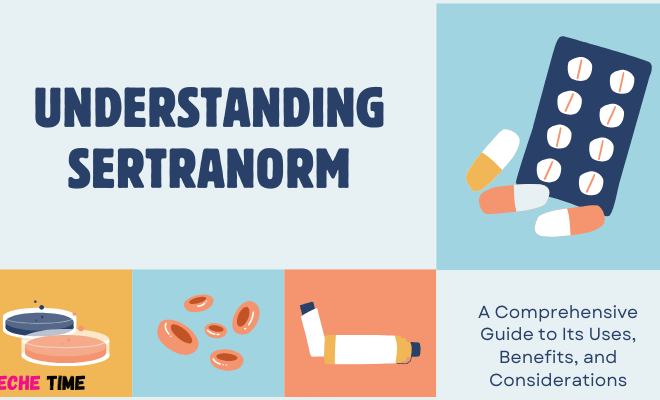
The Legal Process of Filing a Traumatic Brain Injury Lawsuit
Filing a lawsuit can be a daunting task for anyone. When a person experiences a traumatic brain injury (TBI), the steps to justice become even more crucial and complex.
This guide elucidates the legal process for seeking compensation for TBI victims. It provides insightful information and essential tips.
Read on to learn more about a traumatic brain injury lawsuit!
Understanding Traumatic Brain Injuries
It is a type of injury when the head suffers a sudden blow, jolt, or penetrating wound. This can happen due to accidents such as car crashes, falls, sports injuries, or acts of violence.
TBI can have life-altering consequences for victims and their families. It is important to understand the severity of this type of injury and its impact on the victim’s life.
Defining the Impact
It’s vital to understand the nature of a traumatic brain injury. TBIs can result from a variety of accidents, including falls, car crashes, and violence. The severity of a TBI can vary, from a mild concussion to an injury causing permanent brain damage or death.
Recognizing Symptoms and Impact
Symptoms of a TBI can be vague and may not appear immediately after the traumatic event. Victims and their families often report symptoms such as:
confusion
memory loss
changes in mood
headache
difficulty sleeping
The long-term impact of a TBI can include cognitive impairment, personality changes, and a decreased ability to perform daily tasks.
Initiating a Traumatic Brain Injury Lawsuit
The first step towards seeking justice for a TBI is to consult with an experienced personal injury lawyer. They can review the case and determine whether there is enough evidence to pursue legal action. Medical records, witness testimonies, and expert opinions are often crucial in proving the extent of the TBI.
Assessing Your Case
The first step in the legal process is assessing the viability of your case. You must work with an attorney who specializes in personal injury. Together, you will review the details of the injury, the events leading up to it, medical diagnoses, and the financial impact on the victim’s life.
The Importance of Medical Documentation
Solid medical evidence is the backbone of a TBI case. This documentation includes emergency room records, diagnostic scans, and assessments from neurologists and neuropsychologists. Your attorney will work with you to gather and organize this critical information.
Building Your TBI Case
Once you and your lawyer have determined the grounds for a lawsuit, the next step is to build a strong case. This involves evidence gathering, interviewing witnesses, and consulting with experts.
Gathering Evidence
In most cases, the success of a TBI case rests on solid evidence. This includes medical records, witness statements, police reports, and expert opinions. Your
The Role of Expert Witnesses
In complex TBI cases, expert witnesses may be necessary to testify about the victim’s condition and its impact on their life. Neurologists, rehabilitation specialists, and vocational experts can provide valuable insights.
Filing a Traumatic Brain Injury Lawsuit
Once your case is built, your attorney will file a lawsuit. This initiates the legal process and notifies the responsible party of the claim.
The Legal Pleadings
In filing a lawsuit, your attorney will draft and submit various legal pleadings, including:
the complaint that outlines the facts of the case
the defendant’s alleged negligence
the damages you seek
The defendant will then have the opportunity to respond to these claims.
Discovery and Case Development
During the discovery phase, both sides must share relevant information and evidence. This can include:
written questions (interrogatories)
requests for documents
depositions
Your attorney will guide you through this process and work to uncover as much evidence as possible to strengthen your case.
Preparing for Trial or Settlement
After discovery, your case may proceed to trial or settle out of court. Your attorney will work with you to prepare for potential outcomes and ensure your best interests are represented.
Negotiating a Settlement
Many TBI cases are settled before they go to trial. Your attorney will negotiate with the defendant or their insurance company to settle. If a fair settlement cannot be reached, the case will proceed to trial.
The Trial Process
If your case goes to trial, your attorney will present evidence, call witnesses, and argue your case in court. The judge or jury will then determine whether the defendant is liable for your TBI and, if so, the damages you will receive.
Securing Damages for Traumatic Brain Injuries
If you win your case or reach a settlement, you may be entitled to various economic and non-economic damages.
Types of Damages
Various types of damages can be awarded in a TBI case, including economic damages (such as medical expenses and lost wages) and non-economic damages (such as pain and suffering). Punitive damages may also be awarded in cases where the defendant’s conduct was particularly egregious.
Post-Trial and Appeals
After a trial, either party may choose to appeal the decision. If you are dissatisfied with the outcome of your case, your attorney can help you understand your options for an appeal.
Final Remarks and Resources for TBI Lawsuits
Filing a traumatic brain injury lawsuit is not a simple process, but with the right support and resources, it can be navigated. Seeking justice for a TBI requires understanding the impact of the injury and building a strong case with solid evidence.
Seeking Justice and Closure
Filing a traumatic brain injury lawsuit is about more than seeking financial compensation. It’s about holding the responsible party accountable and securing a brighter future for the victim and their family.
Resources for TBI Victims
For those who have suffered a TBI, it’s paramount to have access to the right resources. This includes:
support groups
rehabilitation facilities
legal aid services
Legal Representation and Support
Finding the right legal representation is key to navigating the legal process of a TBI lawsuit. A dedicated attorney can provide legal expertise, emotional support, and guidance.
Understanding the Traumatic Brain Injury Lawsuit
Filing a traumatic brain injury lawsuit is a significant step towards justice and recovery. This guide has walked you through the critical stages of the legal process, from understanding the impact of TBIs to building a strong case and navigating the court system. Remember, the road to recovery and justice is not walked alone.
While no legal outcome can undo the harm suffered, securing fair compensation can provide the means for a better quality of life and closure. Remember that persistence and the right support can turn a daunting process into a path toward healing and justice.
For more helpful tips, check out the rest of our site today!








